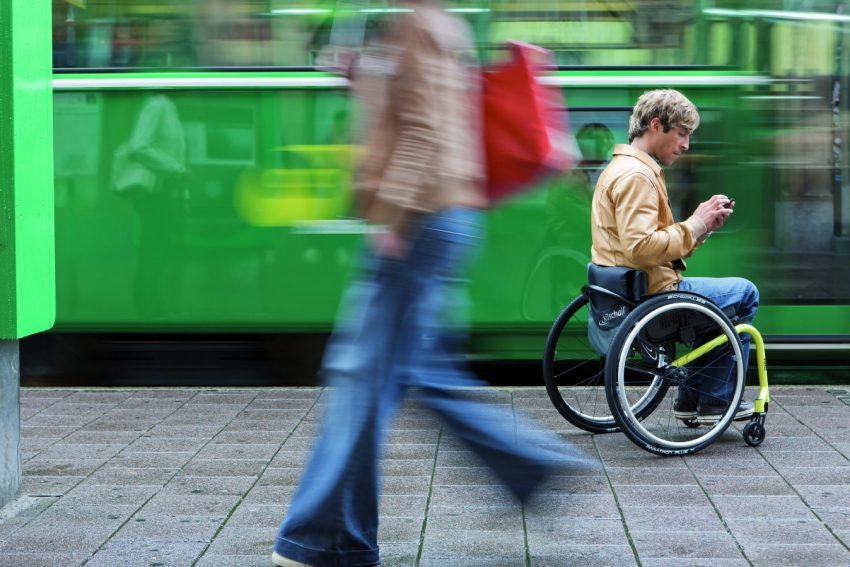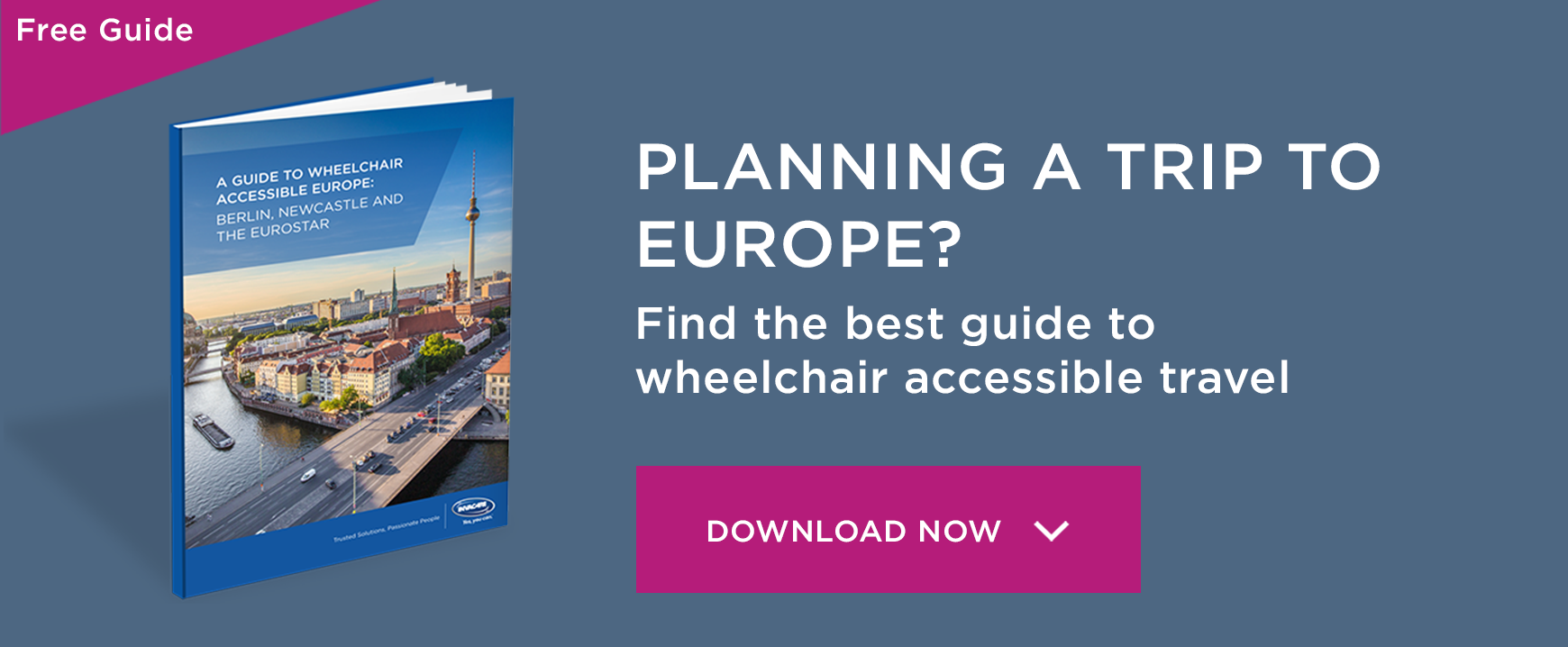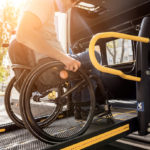Finding Accessible Transportation In Germany: 3 Great Options

Whether you are a resident of Germany or just visiting, it’s important to know what your accessible travel options are. Fortunately, Germany has several great options for making transportation easier for people who use wheelchairs.
Individuals who are severely disabled can also travel on public transportation for free. All they have to have is a green and orange disability card accompanied with an additional page that has a special token, or “Beiblatt mit Wertmarke.” These free passes can be obtained from the Pensions and Benefits Office.
Buses and Trams
Busses and Trams that are equipped for accessible transportation are marked with a wheelchair symbol. The printed schedule found at every stop also contains a footnote that indicates which trams and buses are accessible. The words behindert (disabled) and ausgestattet (outfitted) also indicate when a vehicle is equipped.
Buses and trams with these markings include straps for wheelchairs to keep the chair from rolling inside the vehicle. Buses also have platforms that lower down to the curb so the wheelchair can roll on and be lifted into the bus. If a wheelchair user wants an accessible bus to stop, there is a blue button, marked with a wheelchair, which helps keep the doors of the vehicle open for a longer time.
Buses that are not specially equipped with a lift still have space available inside that is large enough for a wheelchair. For people who have other disabilities, there are seats at the front of the bus that are marked with a blue and white cross. These seats are for anyone, but other passengers are supposed to give up those seats if someone with a disability comes on board.
The Telebus
The Telebus is a unique transportation system that exists in Berlin. It is designed for people who can’t use public transportation. To use the Telebus, you must contact the Berlin Mobility Office. The Telebus runs from 05:00-1:00 every day.
The Telebus is made up of about 100 mini-busses. The service includes both transportation and assistance getting in and out of the vehicle.The Telebus system takes reservations, but spontaneous requests are also accepted. People making these requests have to wait for the next available driver.
Parking: Permits And Other Details
The standard European Community blue badge is honored as a parking permit in Germany. This badge provides parking privileges in all complying European countries. You can apply for this universal badge in your home country.
Badge users from another country can contact the UK Automobile Association to obtain the correct German translation to display along with their badge.
Accessible parking spaces in Germany are marked with a wheelchair symbol. But if no other options are available, wheelchair users are allowed to park in pedestrian zones at certain times of the day. People with disabilities are also permitted to park on the street for up to 24hrs in spaces where parking is limited by time restrictions. And some car parks will even allow people with disabled permits to park free of charge.
Explore Germany
With this information in hand, you should be able to explore Germany freely. These were only a few of the options for travelers with a disability. The U-Bahn and S-Bahn also offer many services. Always call ahead to find out what your options are. You may be pleasantly surprised at what is available for you.
And are you thinking of traveling more extensively for a holiday or leisure time? Learn how to book an accessible trip in this post, Accessible Travel and Leisure For Disabled Voyagers,
Author: Annie Beth Donahue is a professional writer with a health and disability focus.








